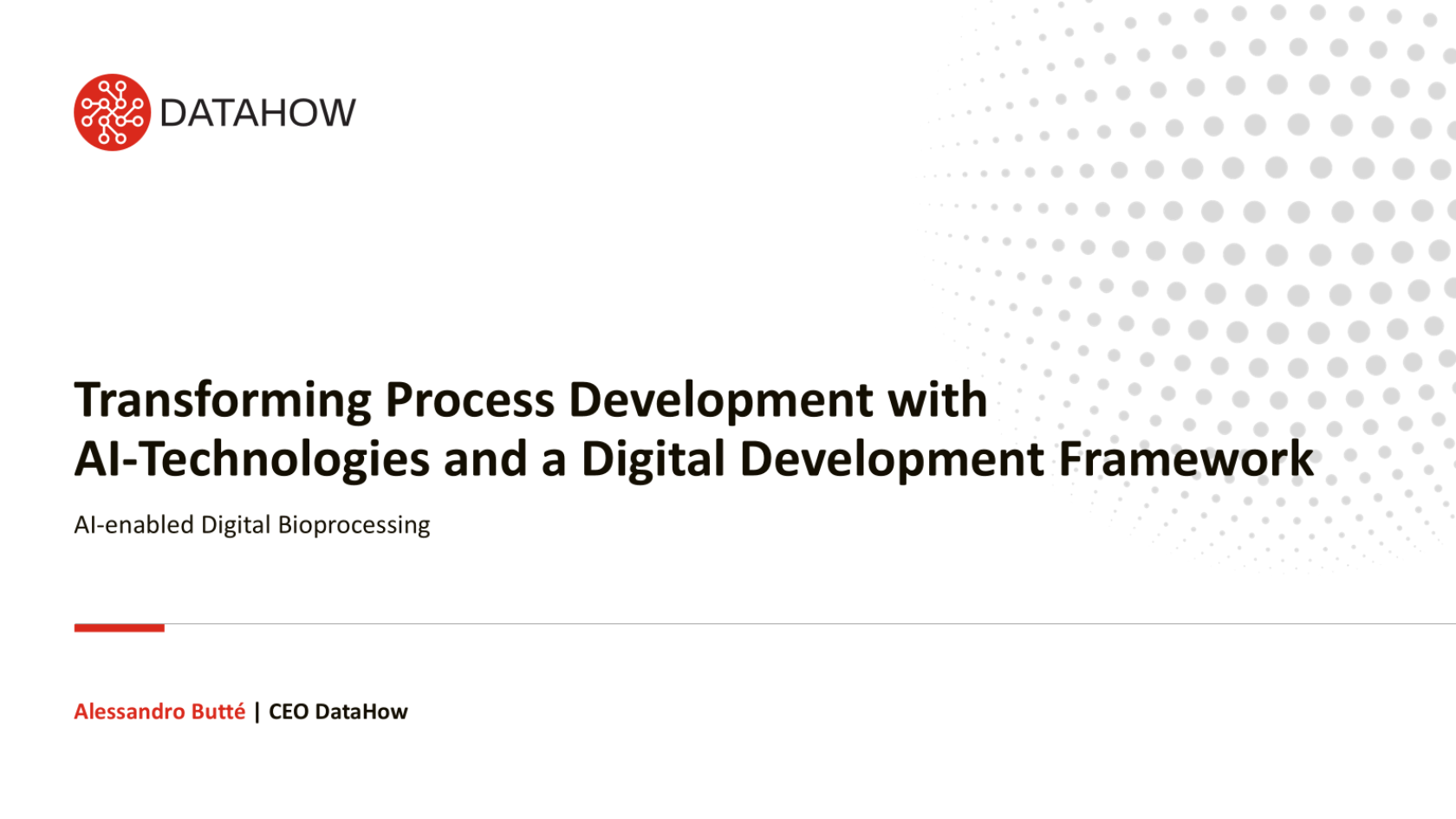Symposium 2025 Recordings
Streamlining Bioprocess Development: A Novel Perspective on the Role of Hybrid Models and Risk-Based Optimal Experimental Design
Dr. Alessandro Butté
Abstract
In the rapidly evolving field of pharmaceutical bioprocess development, the application of hybrid models represents a transformative opportunity to enhance process understanding, while highly improving R&D effectiveness through a significant reduction of experiments and resources. These capabilities are further enhanced by (i) transfer learning, which enables the effective reuse of historical process data—across different products, scales, and equipment, to inform the development of models for new products; and (ii) through Pareto-based Bayesian optimization, which effectively leverages model prediction confidence to enable optimal, risk-informed decisions—such as designing new experiments.
These technologies represent the core of the “DataHow methodology”, which closely resembles the well-known PDCA cycle used in lean development and manufacturing. In this context, the novelty is represented by the introduction of ML tools embedded into our hybrid models. This is reshaping the scope of models from a tool to understand and closely reproduce mature production processes, to a tool that is continuously learning the features of new processes while providing continuous support for decision making, from the early screening phases to the tech transfer to manufacturing. The overall outcome of embracing such methodology is not only more effectiveness, but also an enhanced flexibility in all phases of the product life cycle, with more robust decisions and shorter time-to-decision.
In the talk, many study cases from different modalities, from mAbs to CGTs, and from different unit operations will be discussed.

Digital Bioprocessing
From Innovation to Impact